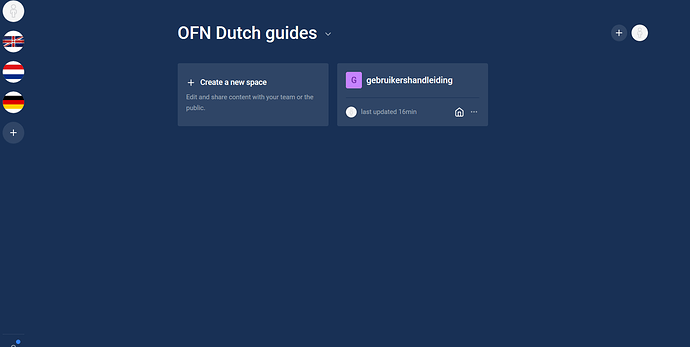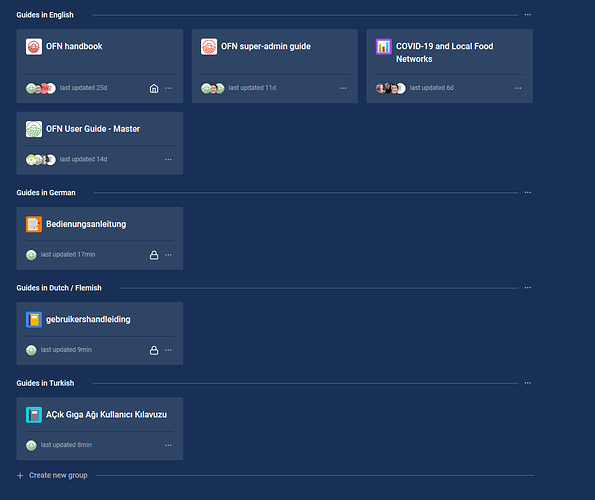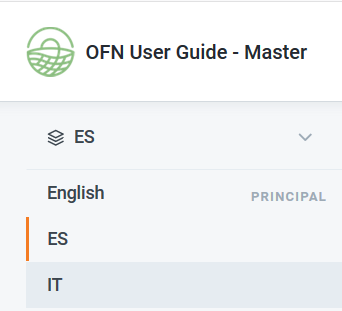I guess this post would have been better under How to translate and update/adapt the user guide in a smart and collaborative way? but this discussion started in January 2016 and I wasn’t sure if it would be clear to add something in this incredibly rich thread 
As some of you know, I recently wrote to Gitbook in order to get unlimited number of users. They offer this to non-profit and open source project, so I’m pretty confident we will get it.
When Gitbook was chosen, this offer for non profit and open source was not available. As multi-language Gitbook are not live yet, this is why (correct me if I’m wrong) we have decided that each instance will have its own Gitbook.
In the light of unlimited user access, I believe we can make a better user of Gitbook “organizations”.
Let’s take a current example:
- Oxfam has someone ready to translate the guide in German. This is ace as it will also benefit the German instance
- In our current process, Oxfam has to create a Gitbook organization that will host the German user guide.
- Then they need to apply to the non-profit upgrade
- Once granted they will be able to invite Germany to collaborate
I see 2 downsides : this is a bit long to do and if Oxfam decides to stop the OFN project one day (I’m not saying they will, this is just a fake example) they would close their Gitbook organization that would lead to the loss of 2 versions of our guides 
Anyway, now that it is possible to have as many user as we want, we could either:
A. Decide to keep one single Organization: The Open Food Network.
B. Create one organization per languages
In both cases, we can add members with written access.
This way the community keeps track and access of all translated version and updates are also made either : you can copy / paste more easily from one guide to another.
Option A.
With this option we would need to create a “space” for each guide. Just like we did for the Super admin and contributor guides.
This “clean up” can also be done on Github. Indeed, we could have all the language specific repos inside the Open Food Network Github organization.
I’ve done this for the Datafoodconsortium organisation. As you can see here:
One repo is called “standarddocumentation”. This is the repo of the Gitbook. I didn’t create a new github organization to do this.
By having a single organization, we could have all the repos in one place and maybe make these guides more visible.
Option B.
This approach is a bit better in UX I guess because we create a kind of filter per language. In one organization we have all the “spaces” in the same language.
It will look like this:
When I update the DFC guide or the French OFN guide, I log in on my PERSONAL gitbook account and from there I have access to the French gitbook organization and the Datafood gitbook organization:
It is very easy to switch from one to the other.
What do you think? Is there something I miss on the current reasons why we have specific repos and instance approach? Thank you 
ping @MyriamBoure @EmilyRogers @tschumilas @lauriewayne1 @lin_d_hop @sauloperez @Kirsten




 but as everyone replies only on the one guide per instance vs. one guide per language thing I just want to make sure everyone understand what I’m speaking about
but as everyone replies only on the one guide per instance vs. one guide per language thing I just want to make sure everyone understand what I’m speaking about 



 , we don’t need to chase to understand which are all the custom URLs used across the system.
, we don’t need to chase to understand which are all the custom URLs used across the system.